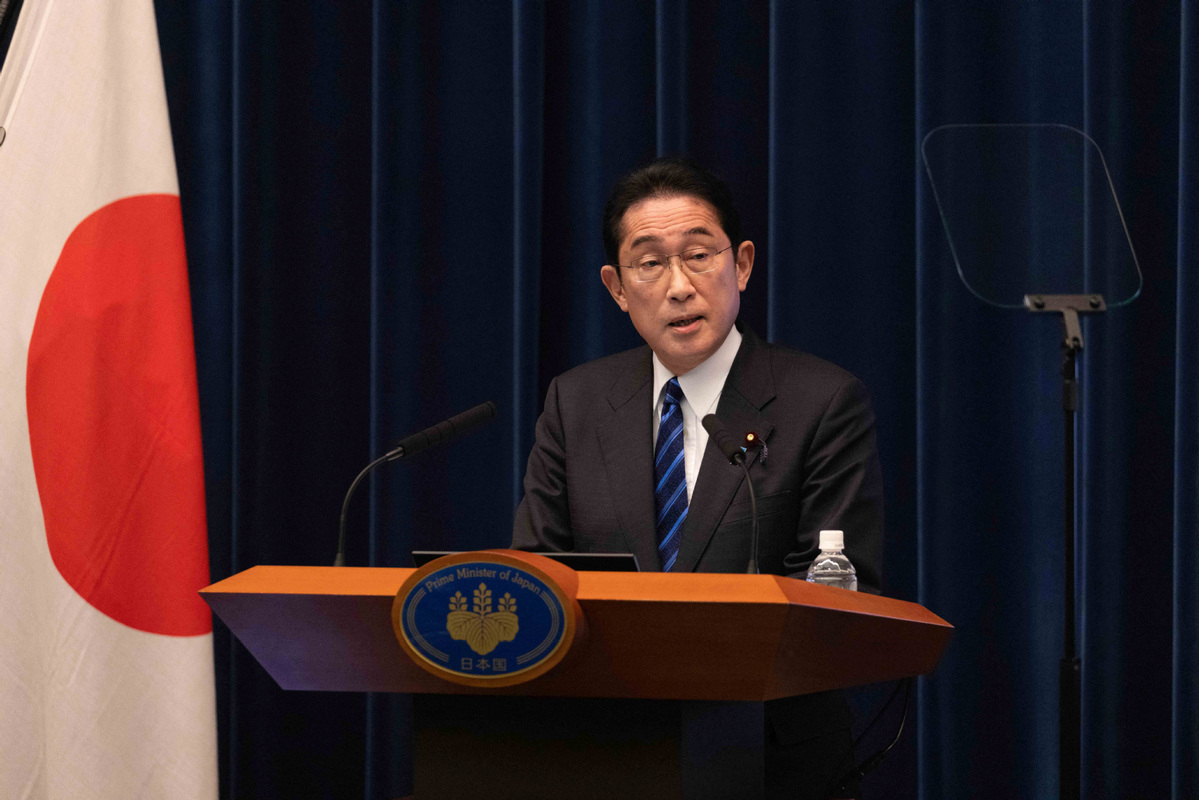Tokyo risks being carried away by intel craving

Japanese Prime Minister Fumio Kishida speaks during his news conference in Tokyo, Japan, on February 24, 2023. [Photo/Agencies]
The reforms implemented by Tokyo over the past 10 years have seen a break with the so-called postwar Yoshida Doctrine that emphasized concentrating resources on economic development and letting the US take care of the country’s security.
By bolstering its capacity for decision-making and removing some of the legal constraints on the use of force, Tokyo has positioned itself for a more integrated military alliance with the US while giving itself room to act in what it perceives to be its interests.
Japan released three documents last year that defined its change of security policy. With a sharp increase in military spending, the most significant take-away from the three documents is the US-Japan alliance is entering a new phase. With its own combat-credible forces, Japan will be proactively involved in international security affairs.
Since war-fighting requires a much higher level of information acquisition and analysis, as well as information sharing between militaries, to better enable this new approach, Japan is looking to strengthen its intelligence gathering and analysis capabilities by building an intelligence network in the Asia-Pacific. It has been proposed that Japan should be included in the Five Eyes intelligence-sharing group that comprises Australia, Canada, New Zealand, the United Kingdom, and the US, and the plan to set up a NATO liaison office in Tokyo was aimed at facilitating this.
But with that plan stalled, due to the opposition of some NATO members, the Fumio Kishida government has been prompted to take a new tact.
According to Japanese media reports, it intends to build an intelligence network to deal with cyberattacks with countries and regions in the “Indo-Pacific” region. It will begin by building cyber defense capabilities for vulnerable Pacific Island countries, and eventually establish a system that can share information about the symptoms and methods of attacks. This has in part been prompted by the hybrid warfare in Ukraine, where cyberspace…


